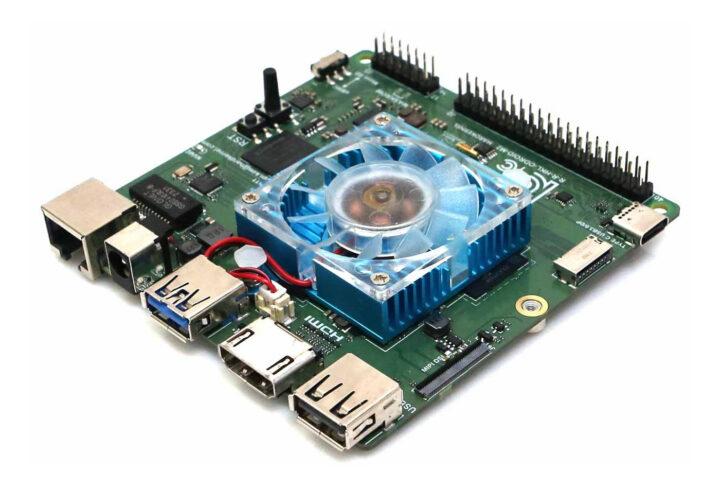Hardkernel has just launched the ODROID-M2 low-profile SBC based on a Rockchip RK3588S2 octa-core Cortex-A76/A55 AI SoC with up to 16GB LPDDR5, 64GB eMMC flash, an M.2 PCIe socket, support for three displays through HDMI, USB-C, and MIPI DSI interfaces, gigabit Ethernet, and more.
The ODROID-M2 follows the ODROID-M1 and ODROID-M1S single board computers based on respectively Rockchip RK3568 and RK3566 quad-core Cortex-A55 processors, but a significantly more powerful Rockchip RK3588S2 processor, and a larger 90x90mm form factor to accomodate for extra features and interfaces.
ODROID-M2 specifications:
- SoC – Rockchip RK3588S2
- CPU – Octa-core processor with 4x Cortex-A76 cores @ up to 2.3 GHz (+/- 0.1Ghz), 4x Cortex-A55 cores @ up to 1.8 GHz
- GPU – Arm Mali-G610 MP4 GPU @ 1 GHz compatible with OpenGL ES 3.2, OpenCL 2.2, and Vulkan 1.2 APIs
- VPU – 8Kp60 video decoder for H.265/AVS2/VP9/H.264/AV1 codecs, 8Kp30 H.265/H.264 video encoder
- AI accelerator – 6 TOPS (INT8) NPU
- System Memory – 8GB or 16GB 64-bit LPDDR5 (4GB RAM variant coming soon).
- Storage
- 64GB eMMC flash
- MicroSD card slot with UHS-I SDR104 mode support
- M.2 M-Key socket with PCIe 2.1 x1 for NVMe SSDs
- Video output
- HDMI 2.0 up to 4K @ 60Hz with HDR, EDID
- DisplayPort via USB-C port
- 30-pin MIPI DSI connector (note: different from the 31-pin connector on the ODROID-M1)
- Networking – Gigabit Ethernet RJ45 port
- USB
- USB 2.0 host port
- USB 3.0 host port
- USB 3.0 Type-C port with DP Alt-Mode (not a power source/sink)
- Expansion
- 40-pin Raspberry Pi-compatible GPIO header
- 14-pin GPIO header
- Debugging – Serial debug console
- Misc
- Power button, Reset button
- System LEDs
- Red (POWER) – Solid light when DC power is connected
- Blue (ALIVE) – Flashing like a heartbeat while the Linux kernel is running, solid light in u-boot.
- PCF8536 RTC with CR2032 backup battery holder
- Boot priority switch for eMMC or microSD card
- Power Supply – 7.5V to 15.5V DC input via 5.5/2.1mm power barrel jack; 12V/2A power adapter recommended
- Power Consumption (Hardkernel numbers)
- Power Off – About 0 Watt
- IDLE – About 1Watt without any peripherals
- CPU stress test – About 7.5 Watts (Performance governor) without any peripherals
- Dimensions – 90 x 90 x 21mm
- Weight – 78g including heatsink, 58g without heatsink
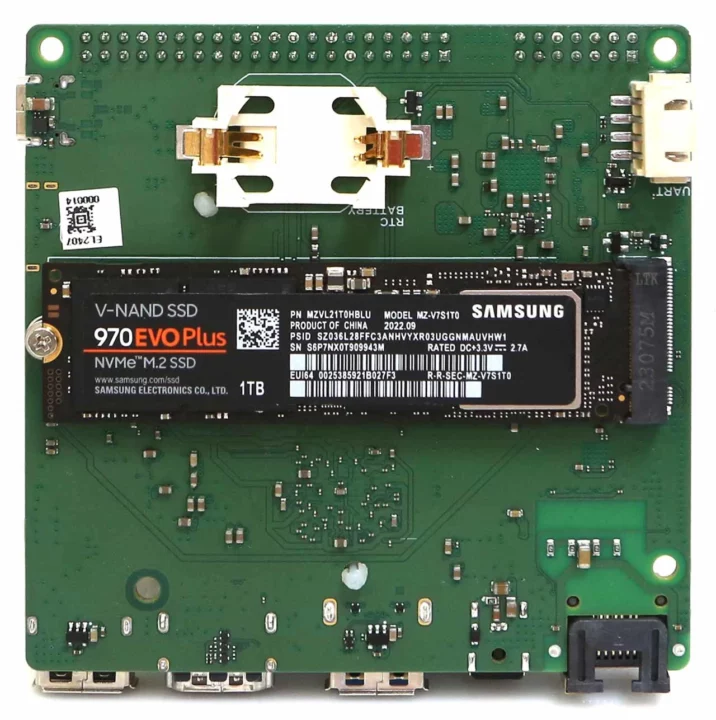
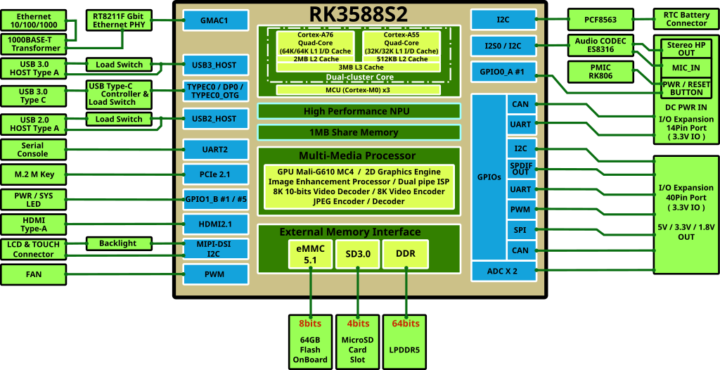
You may have heard about the RK3588S, but not necessarily about the RK3588S2, and we wondered about the difference between the two in our Radxa ROCK 5C article:
how does RK3588S2 differ from RK3588S? They are basically the same except the RK3588S2 comes with an additional MIPI CSI interface which is not used in the ROCK 5C.
The MIPI CSI interface is not used in the ODROID-M2 either, but there must be a good reason why both companies selected the RK3588S2 instead, either pricing or availability…
In terms of performance, Hardkernel explains the ODROID-M2 is better than the ODROID-M1S in every way:
- Multicore performance is about 3 times faster.
- About twice the memory bandwidth with LPDDR5 64-bit RAM
- The Mali-610 GPU is over 5 times faster.
- The 6TOPS NPU is over 3 times faster.
- The 64GB eMMC flash is twice as fast thanks to an HS400 interface.
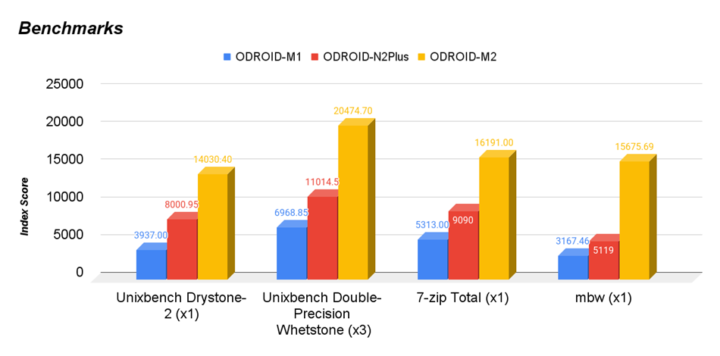
One downside is that the new ODROID-M2 is fitted with a heatsink with a fan for cooling, while the earlier models could operate fanlessly. Having said that, Hardkernel mentions the fan seldom rotates in the video below, so I’d assume some people may just decide to disconnect the fan.
Hardkernel is usually better than most other SBC vendors when it comes to software support. We typically just get a list of operating systems, but the Korean company goes into more detail when it comes to software features.
- Android 13
- Based on AOSP
- Customized raw GPIO access framework (in other words, GPIOs works in Android).
- SPI ( CAN receiver, LED strip lights, IO expander)
- UART (Loopback test, Barcode scanner, Thermal printer)
- GPIO toggling
- Rotary encoder with GPIO IRQ
- PWM outputs
- Ubuntu 20.04 LTS Kernel 5.10
- Wayland-based GNOME desktop
- ARM Mali Bifrost GPU OpenGL-ES / EGL driver
- MIPI DSI driver
- GPIO drivers and WiringPi library
- NPU driver and Neural Network APIs
- VPU driver with MPP/Gstreamer APIs
- Ubuntu 24.04 with a newer kernel version will be released in a few months
You can see a short demo in Android 13 with two 4K displays one playing a 4K video and the other running 3DMark with 3D graphics acceleration. More details about the hardware and software can be found on the wiki.
Hardkernel sells the ODROID-M2 SBC on its own store for $115 with 8GB LPDDR5, 64GB eMMC flash, and an enclosure, while the 16GB RAM model goes for $145. The upcoming 4GB RAM model will sell for under $100, more exactly for $95 once it becomes available.
Compatible accessories include:
- 12V/2A Power Supply: $5.50
- ODROID-Vu8S MIPI-DSI Kit – $39
- WiFi/Bluetooth Module 5BK: $8.90
- Weather Board Zero: $2
- CAN-FD add-on board: $11
- USB-UART Kit: $9.90
- Cube Case: $28 with four USB ports for gamepads (retro gaming)
- Vu12 12.3-inch LCD display: $120
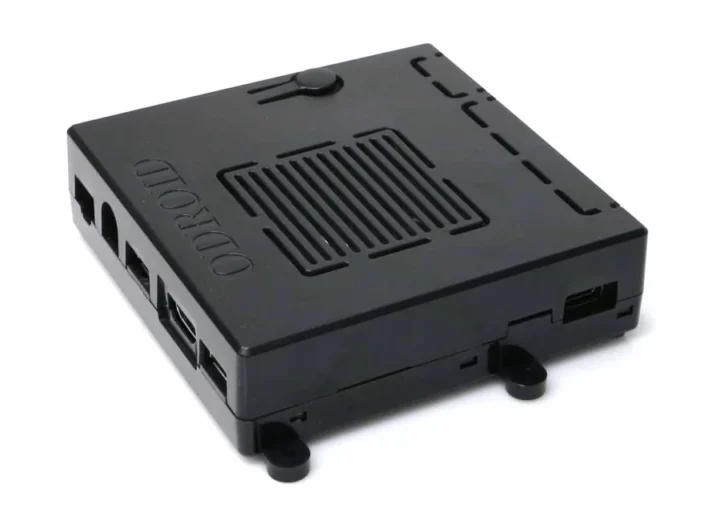
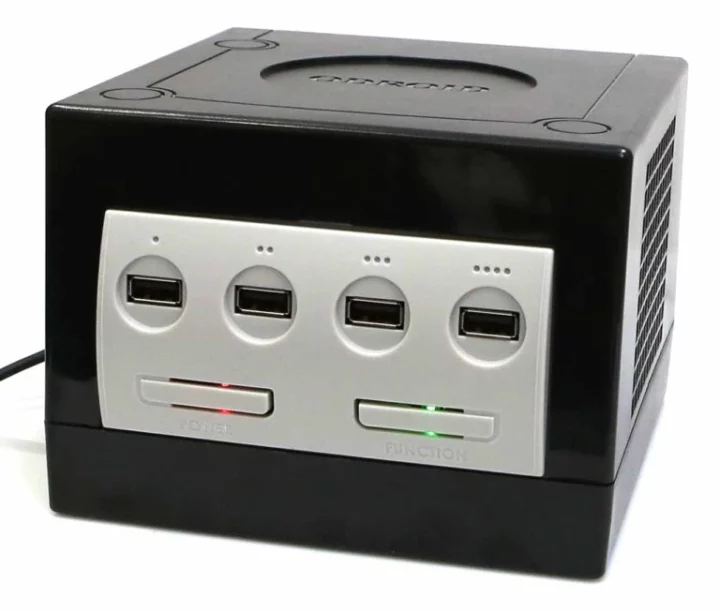
Thanks to “T” for the tip.

Jean-Luc started CNX Software in 2010 as a part-time endeavor, before quitting his job as a software engineering manager, and starting to write daily news, and reviews full time later in 2011.
Support CNX Software! Donate via cryptocurrencies, become a Patron on Patreon, or purchase goods on Amazon or Aliexpress


